Have You Heard of These 10 Uncommon Fruits? How They Can Help—or Harm—Your Health

Fruit is a key component of a healthy diet, offering vitamins, minerals, and often that little touch of sweetness we crave. While you can easily find standard strawberries, apples, oranges, bananas, and more at the grocery store, there are some uncommon fruits you can’t find at your local Walmart or Kroger. Data recently compiled by experts at Med Genius identified the 10 most-Googled lesser-known fruits in the U.S., identifying 10 varieties you may want to try.
But before you go out in search of these more obscure options, keep in mind that not all fruits are created equal in terms of their health benefits. According to Trista Best, a registered dietitian at Balance One Supplements, and Jacek Szymanowski, PN-Certified nutritionist at Torokhtiy, these 10 uncommon fruits can have both positive and negative effects on your overall health. Read on to find out what you should know before sampling.
RELATED: 7 Best Fruits That Burn Fat, According to Dietitians.
1
Breadfruit
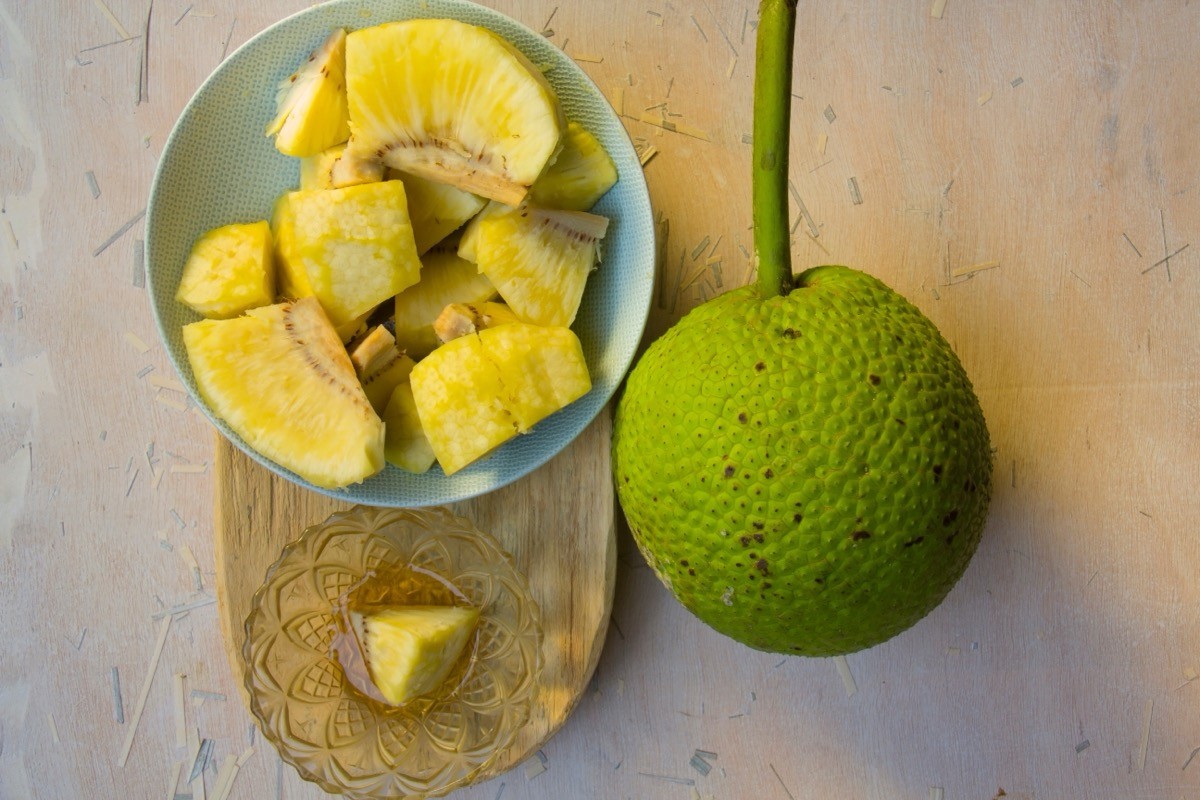
Breadfruit originated in New Guinea and the Indo-Malay region and is often used when cooking. According to the Hawai’i Homegrown Food Network and the Breadfruit Institute of the National Tropical Botanical Garden, the fruit can be eaten on its own with butter and salt and also works as a substitute for potatoes.
Breadfruit can also bolster your health as it’s a good source of fiber and potassium, which support heart health and digestion, Best and Szymanowski explain in a press release provided to Best Life.
However, you can have too much of a good thing. When you overeat breadfruit, it can cause digestive discomfort as a result of its fiber content, the experts add.
2
Starfruit
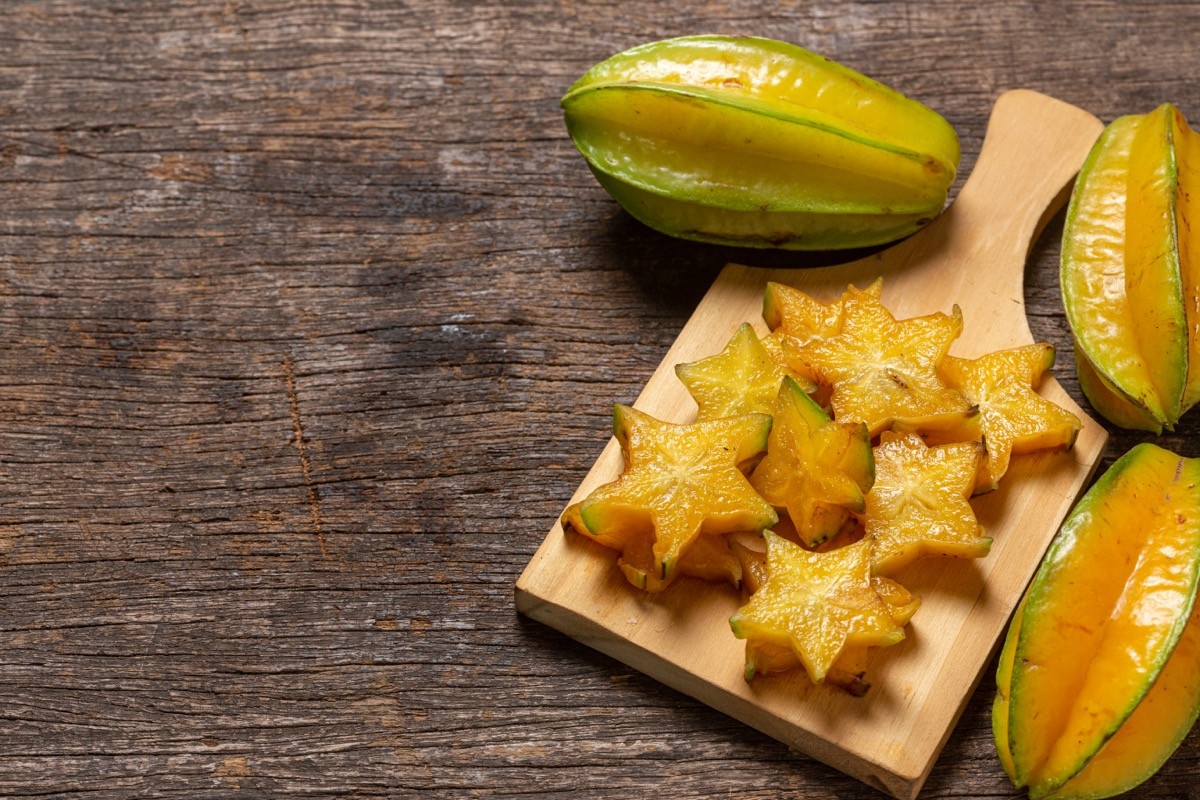
Aptly named, starfruit forms star-shaped pieces when it’s cut crosswise. While it’s native to Southeast Asia, it is now grown in Florida and Hawaii on Carambola trees, according to the Wisconsin Department of Public Instruction.
The fruit has a “slightly sweet-sour flavor,” like a combination of pear, green grape, and orange. It’s a good source of vitamins C and A, phosphorous, and potassium.
However, Szymanowski and Best point out that starfruit also has oxalates, “which can be harmful to individuals with kidney issues, potentially leading to kidney stones or toxicity.”
The National Kidney Foundation backs this up, explaining that substances in starfruit can affect the brain and cause neurological disorders.
“This toxic substance is called a neurotoxin. People with healthy, normal kidneys can process and pass this toxin out from their body. However, for those with kidney disease, this is not possible. The toxin stays in the body and causes serious illness,” the foundation warns.
If you have kidney disease, it’s recommended that you avoid starfruit and speak with your healthcare provider or dietitian to learn more.
3
Prickly Pear
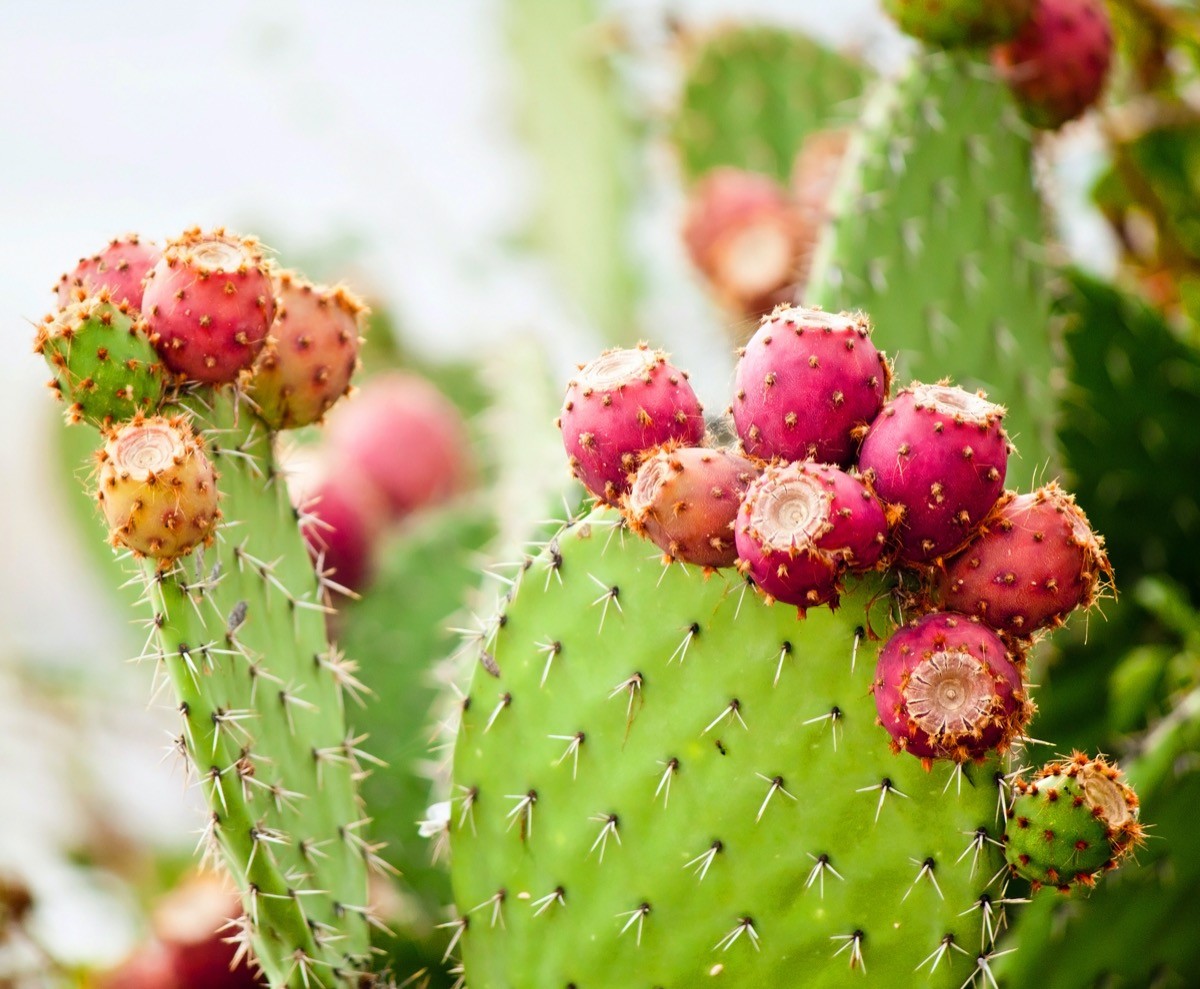
You’ve probably seen prickly pear as an ingredient in a cocktail or mocktail, but it’s not just an advertising gimmick using alliteration. Prickly pears actually exist and have a sweet but “somewhat bland” flavor like melon, according to The Nature Conservancy. Interestingly enough, the prickly pear isn’t a member of the pear family. It got its name because it resembles a pear in size and shape.
Like other fruits on this list, prickly pear is high in fiber, vitamin C, and antioxidants, which help with digestion and reduce inflammation, Szymanowski and Best say. According to the Mayo Clinic, some evidence suggests that it can decrease blood sugar levels in those with type 2 diabetes.
However, it can also cause some gastrointestinal issues if you overdo it.
“Overconsumption may lead to bloating, diarrhea, or constipation due to its high fiber content,” they warn. Mayo Clinic also cites the possibility of nausea, recommending that you “consider easing into it” if you’re going to try prickly pear cactus.
RELATED: 6 Fruits to Avoid If You’re Trying to Lose Weight, Doctor Says.
4
Mangosteen
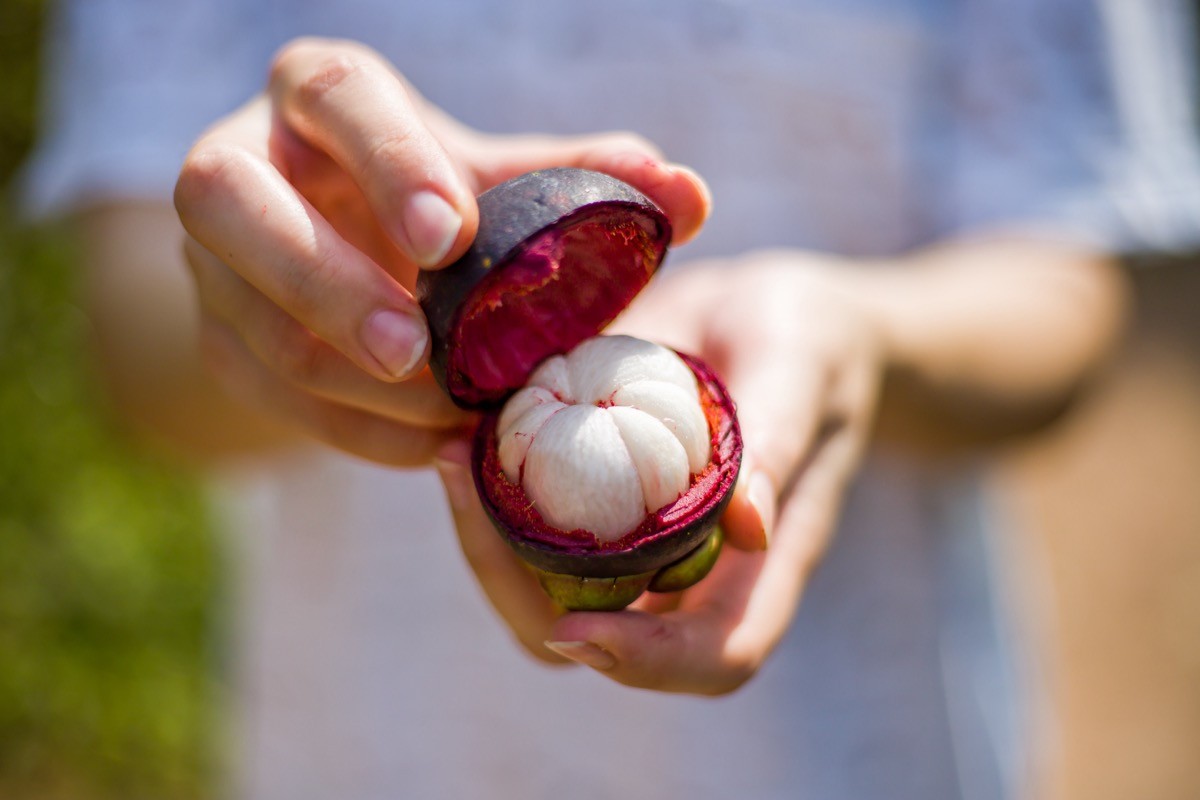
Not to be confused with your typical mangoes, mangosteen is dark purple or red and has an acidic and sweet taste, according to the National Library of Medicine (NLM).
Szymanowski and Best point out that it has xanthones, which are known to have anti-inflammatory properties and boost immunity. The fruit is also often used for “serious gum infections, obesity, muscle strength, diarrhea, and many other conditions,” per the NLM.
Still, mangosteen can have detrimental health effects.
“Rarely, mangosteens can cause gastrointestinal upset or allergic reactions, and excessive consumption might affect blood sugar levels,” Szymanowski and Best say.
The NLM notes that the fruit is “possibly safe when taken for up to 12 weeks.” However, women who are pregnant and breastfeeding should avoid the fruit, and those with bleeding disorders or upcoming surgery should also steer clear, as mangosteen can slow blood clotting.
5
Goji berries
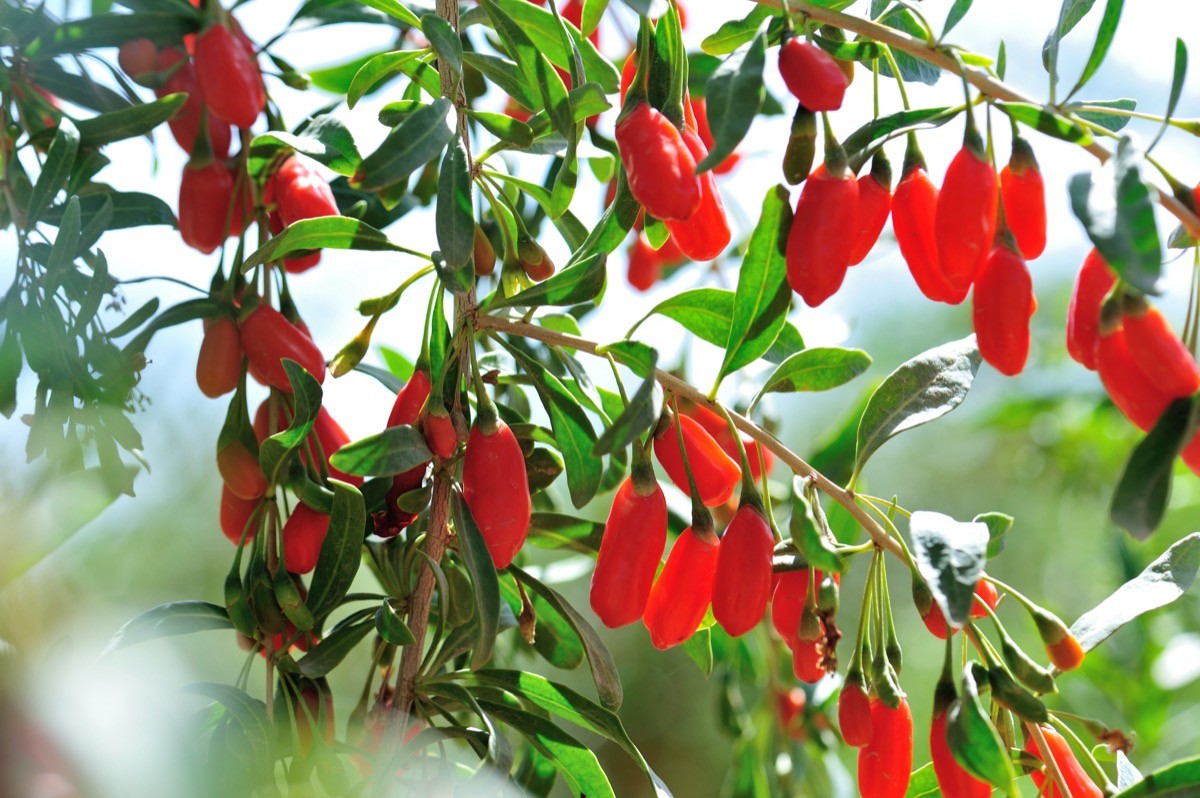
You may have heard of goji berries, which are well-known as a source of vitamin A, supporting eye health and your immune system, Szymanowski and Best write.
They are brightly colored and have a “unique, sour flavor,” Healthline adds, and they’re sometimes sold powdered, dried, or as an ingredient in supplements.
However, you should be mindful of goji berries if you take other medications.
“They can interact with certain medications, such as blood thinners, and may cause allergic reactions in some individuals,” Szymanowski and Best warn.
The berries also contain betaine, which can harm fetal health, but more research is needed to determine whether they’re safe to eat during pregnancy, Healthline points out.
6
Kumquats

The kumquat is a teeny citrus fruit, but what it lacks in size, it makes up for in vitamin content. According to Szymanowski and Best, they’re “loaded with vitamin C and fiber,” aiding digestion when you eat the whole fruit (including the peel)! Depending on the type of kumquat you eat, it’ll either be more sour or sweet and probably not too juicy, according to WebMD.
While they’re not as concerning as other lesser-known fruits, they can creative digestive discomfort if you eat too many. This is due to the acidity, according to Szymanowski and Best.
RELATED: 4 Best Fruits to Erase Bloating, Science Shows.
7
Passion fruit
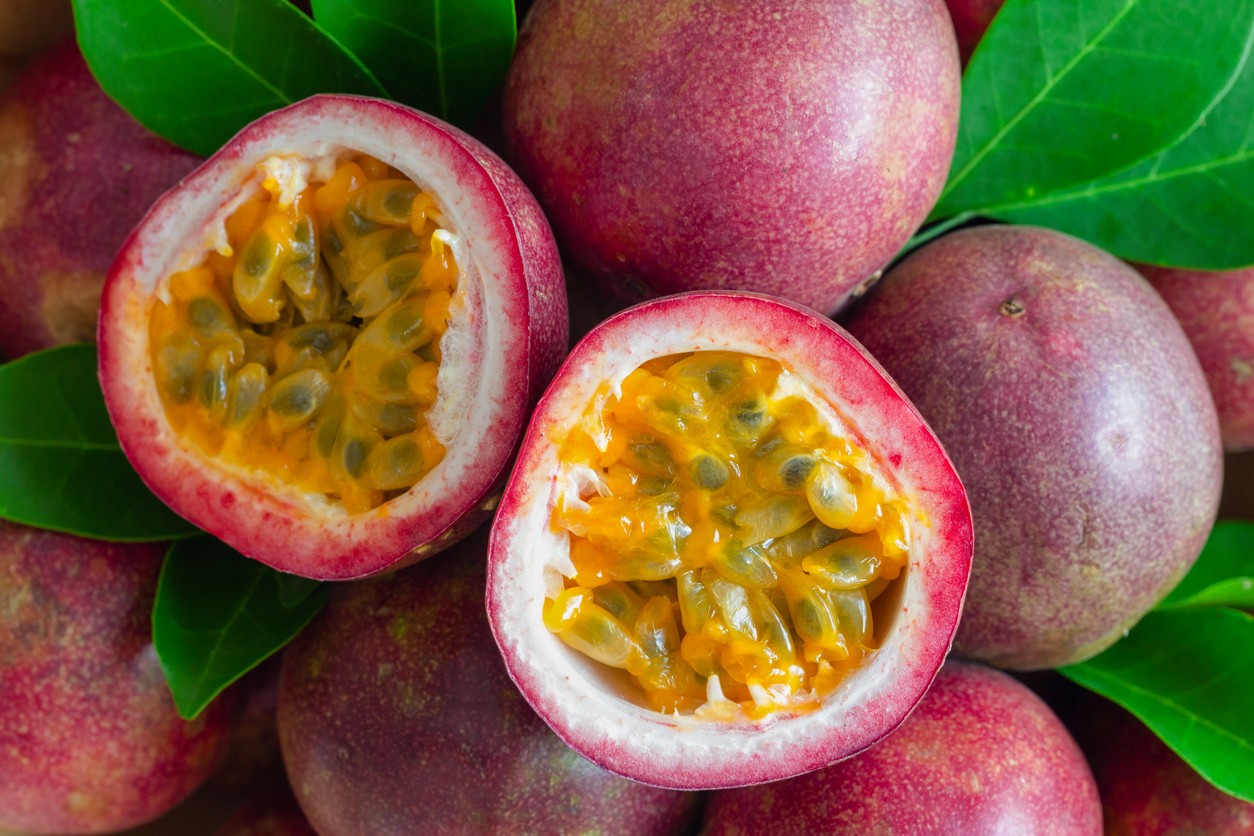
You may have heard of passion fruit, but you might not be able to recall the specific flavor. According to Medical News Today, it has a citrusy taste as well as “hints of melon,” and it’s become more popular due to its antioxidant content. Its benefits don’t stop there, though.
“Passion fruit is packed with vitamins A and C, which benefit the skin and immune system,” Szymanowski and Best write. “It’s high in fiber but low in calories, making it good for digestion and weight control.”
But while it’s a plus if you’re trying to lose a few pounds, eat passion fruit in moderation. The experts note that the seeds can cause an “intestinal obstruction” if you eat too much. This is especially dangerous for children.
Medical News Today also points out that people with a latex allergy could have a reaction to passion fruit because the two have similar proteins.
8
Jackfruit
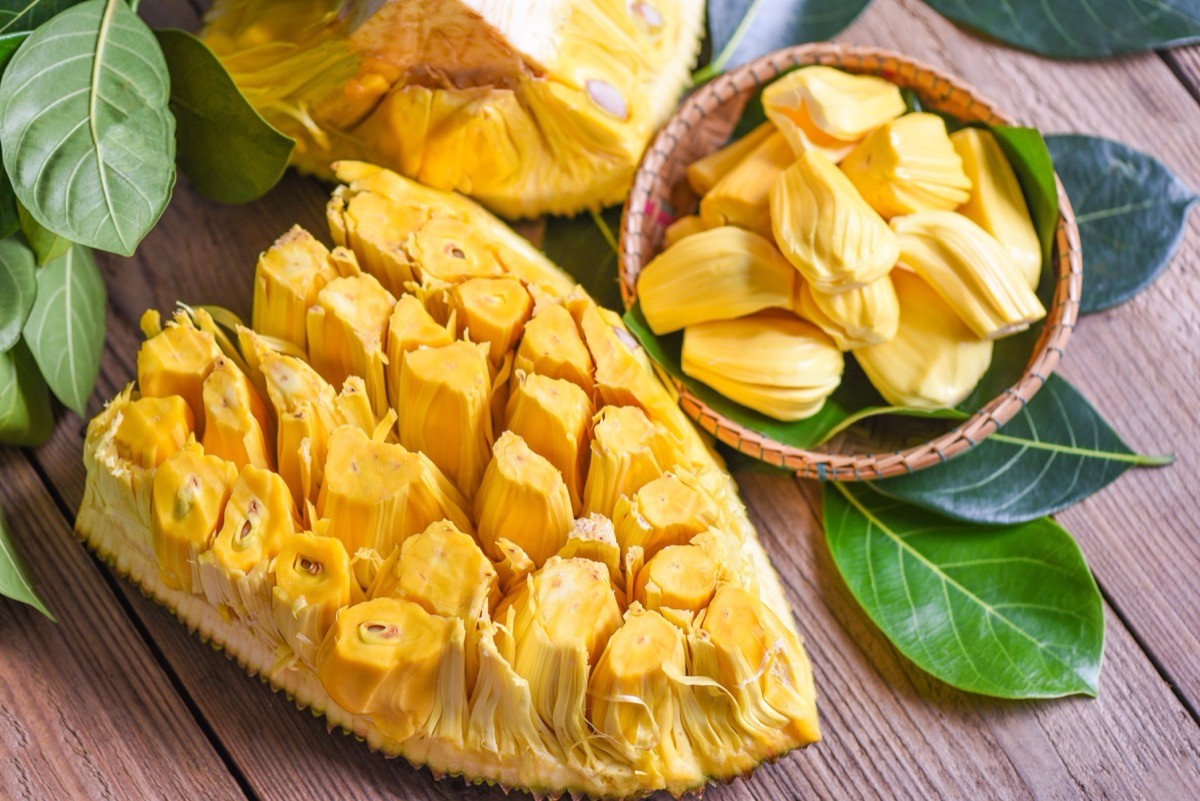
According to Cleveland Clinic, jackfruit is a particularly unique food often used as a meat substitute. While it’s a fruit, it works best in savory dishes—its stringiness makes it a good alternative to pulled pork or chicken.
The fruit is also packed with vitamin C, potassium, and fiber and has been shown to potentially reduce the risk of heart disease. Even better, jackfruit’s low glycemic index score means it doesn’t affect blood glucose levels, while extract from its leaves may promote wound healing.
“Ancient people used jackfruit as medicine,” Gillian Culbertson, RD, told Cleveland Clinic. “In folk medicine, where jackfruit is grown, people have used it for its antimicrobial and antifungal properties.”
Despite these widespread benefits, jackfruit can be harmful to some.
Szymanowski and Best warn that people can have allergic reactions or resultant digestive issues. Those with a latex or birch pollen allergy should avoid the fruit, as should those with chronic kidney disease or acute kidney failure, Culbertson told Cleveland Clinic. The potassium level in jackfruit can be particularly harmful to people with these conditions and lead to the development of hyperkalemia (high potassium).
9
Lychee
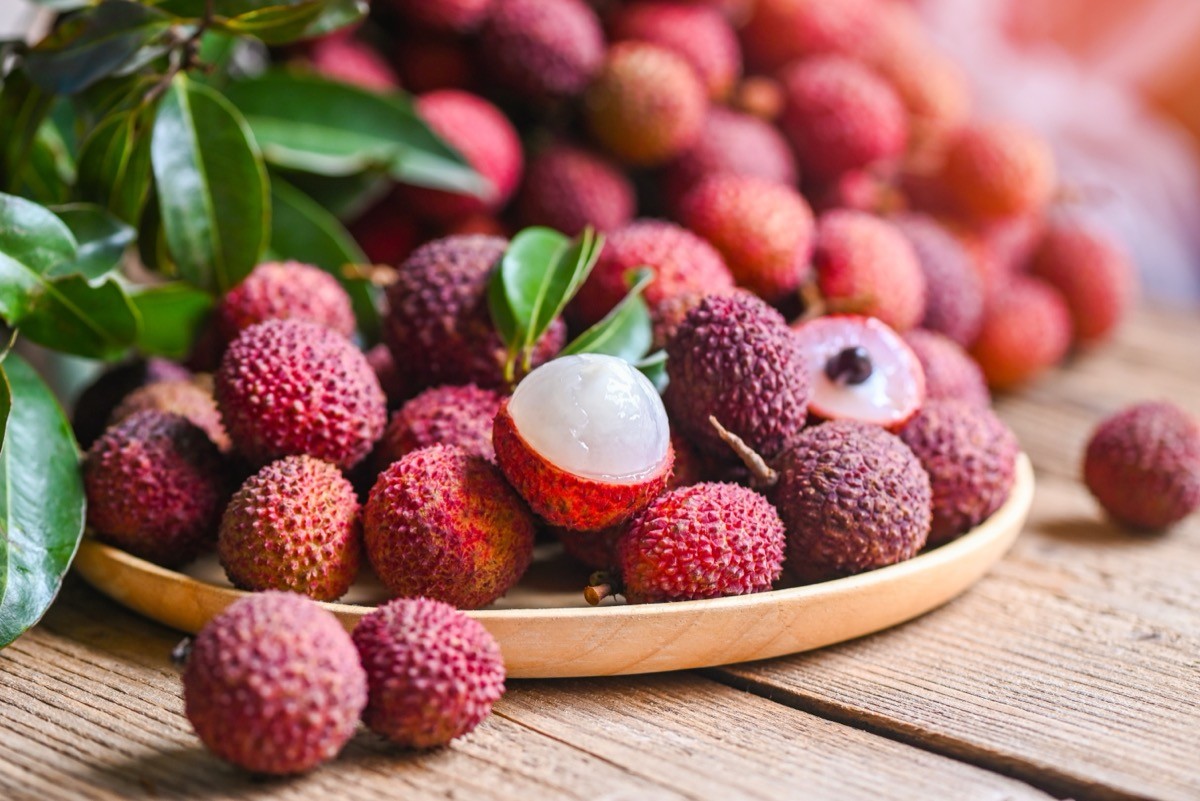
Described by CNN as an “exotic and tasty treat,” lychee has melon, berry, and floral notes.
As Szymanowski and Best explain, “Lychees are high in vitamin C and are great for boosting immunity and skin health.” Verywell Health also highlights lychee’s positive effects on heart health (thanks to polyphenols) and digestive health (due to fiber).
However, these lychee fruit can also be quite dangerous. If you eat lychees before they’re ripe and on an empty stomach, you could end up with hypoglycemia (low blood sugar). CNN adds that this can even be a fatal mistake, as observed in India, where children who ate lychees on an empty stomach developed hypoglycemia and encephalopathy (a chain in brain functioning).
“Naturally occurring toxins in the lychee fruit are associated with toxicity that led to this encephalopathy,” Padmini Srikantiah, MD, told CNN in 2017. “It’s quite possible that when glucose metabolism is disrupted, you get buildup of other metabolites that could have some toxic [effects] as well.”
10
Dragon fruit
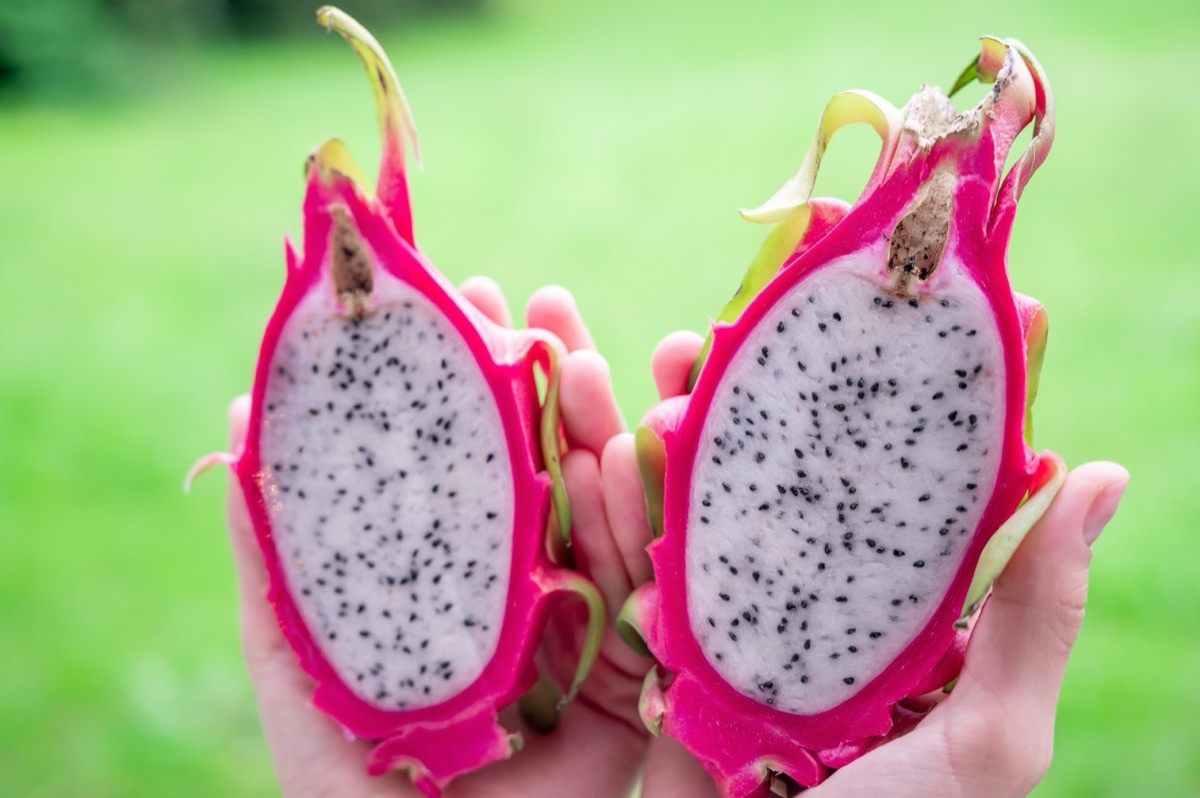
Often offered as a base option for your smoothie bowl, dragon fruit (also known as pitaya) is another that’s rich in fiber, antioxidants, and vitamin C, helping to support immune health and digestion, Szymanowski and Best say. It’s also a great addition to your diet if you’re trying to lose weight—experts note that dragon fruit is very low in calories.
But again, take it easy.
“[Dragon fruit is] generally safe, but overconsumption may lead to mild digestive issues such as diarrhea due to its high fiber content,” Szymanowski and Best warn.